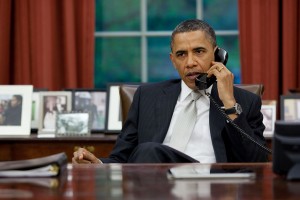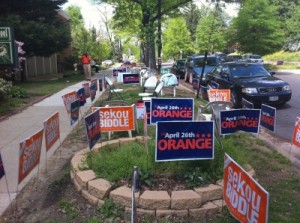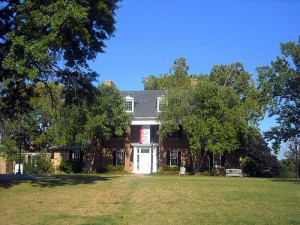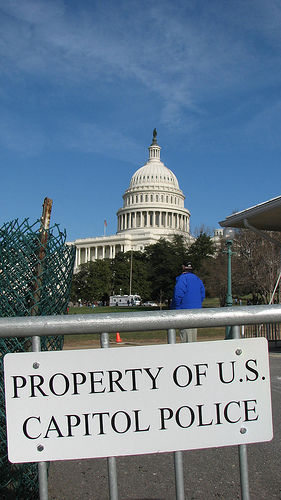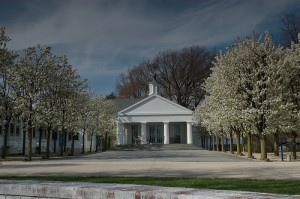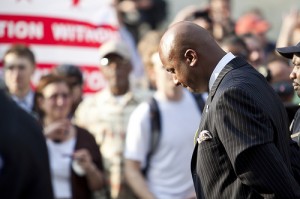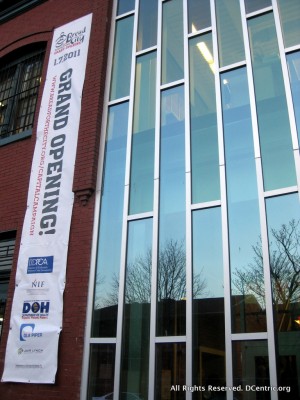
Anna John
Bread for the City expanded its northwest center, reopening in January.
No room to grow a vegetable garden? Just go to your roof.
That’s what nonprofit Bread for the City will begin building this weekend on top of its recently renovated Northwest center, creating one of the largest rooftop produce gardens in D.C.
The idea came out of an initiative by a couple of employees at the organization’s Southeast center, where they had planted some herbs and vegetables on the patio. Development Associate in Communications Greg Bloom says the organization then decided to turn the Northwest center’s new green garden into one that grew more than just plants that absorb rain water.
DC Greenworks will provide assistance and clients will help maintain the garden.
The Bread for the City garden will be 3,500 square ft. large with 30 raised beds, and all the more poignant for Bloom is the fact this garden is going on the roof of a building that houses a medical clinic and food pantry at 7th street NW between P and Q streets.
“D.C. is notorious for really bad food deserts, especially in low income parts of the city,” Bloom says.
Bloom says the problem of food insecurity and malnutrition is “more complicated than where can you find food in your neighborhood, and the solutions to it are also more complicated than, ‘we can’t grow all the food we need.’”
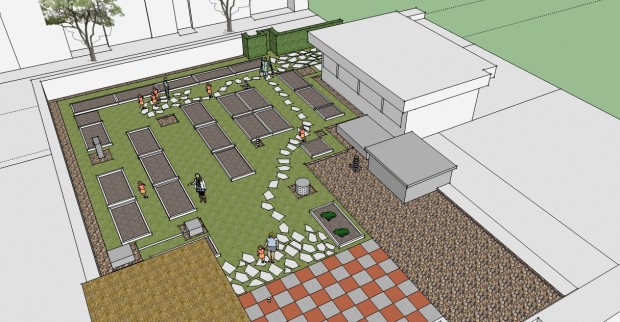
- Produce will be planted in raised beds on the roof.
Courtesy of Bread for the City
And indeed, this garden won’t be able to feed all Bread for the City clients (the organization serves 4,500 families a month — that’s a lot of food for a roof to produce). Instead, it will primarily serve as a way to educate clients and the community about food justice and also serve as a green space “to foster reflection” and spur dialogue between and among clients, community organizers and donors about food sustainability.
“All too often the question of food sustainability and environmental sustainability, it’s actually a really elitist conversation in that the people who are talking about it are the ones with the resources to experiment and buy high-end produce,” Bloom says. “We don’t think it has to be that way…. And it’s important for us to create at least one space for that.”
Work on the garden will begin Saturday (weather permitting) and ramp up, continuing April 23. And, yes, you can help.



